As a conscientious consumer, understanding the ins and outs of cashing cheques in Japan is vital.
We'll cover everything from identifying the types of cheques accepted by Japanese banks and financial institutions to deciphering fees and wait times. Whether you're new to cheque transactions or seeking to maximize your rights as a consumer, this article is your key to unlocking the world of cheque cashing in Japan.
Conversion Fees: Banks and financial institutions charge conversion fees when cashing foreign cheques. These fees can vary, impacting the amount you receive.
Processing Charges: Additional processing fees may reduce the final payout.
Clearance Period: Japanese banks often place foreign cheques on hold, subjecting consumers in Japan to a clearance period that can range from a few days to several weeks.
Verification Process: Japanese Banks may conduct thorough verification, extending the wait time before you can access the funds at your local bank in Japan.
Japanese consumers must be aware of these costs and potential delays when cashing foreign cheques, advocating for transparency and fair practices in the banking industry in Japan.
If you are using a bank in Japan to cash your foreign cheque in Japan, you should be aware that they will set their exchange rate. The specified rate by Japanese banks may not be the best, but it is the best one in your situation. It is also possible that the exchange rate will change between the time your cheque in Japan is presented and when it clears. In such a case, you could be paying more than the actual amount of money in the cheque in Japan. Therefore, getting your bank in Japan to transfer your cash electronically is essential.
If the currency of the cheque in Japan you are cashing is different from the country in which it was written, it is worth considering payment by collection. This option is better in Japan if the cheque is from a high-risk country. In this case, you will have to wait for weeks in Japan for it to clear, and you will have to pay a processing fee. Be aware in Japan that currency exchange rates may change when it takes to clear your foreign cheque in Japan, so you will need to ensure you have all your details ready before you head to a bank.

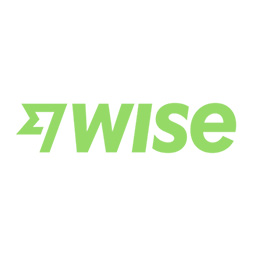 Visit Wise Multi-Currency Account
Visit Wise Multi-Currency Account
Used By: 11000000
Currencies Available: 54
Transfer Fees: 0.5%-1%
Payment Methods: Bank transfer, debit card, credit card, SOFORT transfer
iOS App : yes, Android App : yes
LiveChat:
Min Transfer: 1 USD
Max Transfer: 1000000 USD/transaction/day (personal), 3000000 USD/transaction/day (business)
Year Founded: 2011
 Visit Remitly
Visit Remitly
Used By: 3000000
Currencies Available: 63
Transfer Fees: 0-3.99$
Payment Methods: Bank transfer, credit/debit card
iOS App : yes, Android App : yes
LiveChat:
Min Transfer: US$1.00
Max Transfer: US$20,000.00
Year Founded: 2011
 Visit Wise
Visit Wise
Used By: 11000000
Currencies Available: 54
Transfer Fees: 0.5%-1%
Payment Methods: Bank transfer, debit card, credit card, SOFORT transfer
iOS App : yes, Android App : yes
LiveChat:
Min Transfer: US$1.00
Max Transfer: US$1,000,000 (varies based on currency)
Year Founded: 2011
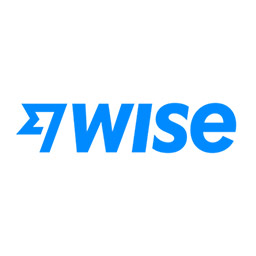 Visit Wise Business
Visit Wise Business
Used By: 11000000
Currencies Available: 55
Transfer Fees: 0.5%-1%
Payment Methods: Bank transfer, debit card, credit card, SOFORT transfer
iOS App : yes, Android App : yes
LiveChat:
Min Transfer: 1 USD
Max Transfer: 1000000 USD/transaction/day (personal), 3000000 USD/transaction/day (business)
Year Founded: 2011
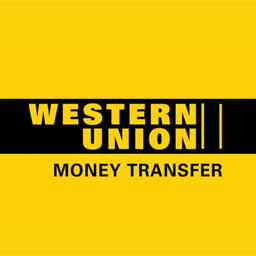 Visit Western Union
Visit Western Union
Used By: 15000000
Currencies Available: 38
Transfer Fees: up to 3%
Payment Methods: Cash, bank transfer, debit card, credit card (varies from country)
iOS App : yes, Android App : yes
LiveChat:
Min Transfer: $1.00
Max Transfer: $10,000.00 (varies)
Year Founded: 1851
 Visit MoneyGram
Visit MoneyGram
Used By: 150000000
Currencies Available: 46
Transfer Fees: 1.99$
Payment Methods: Bank transfer, debit/credit card, cash
iOS App : yes, Android App : yes
LiveChat:
Min Transfer: $1.00
Max Transfer: $10,000.00 (varies)
Year Founded: 1940
 Visit Small World
Visit Small World
Used By: 15000000
Currencies Available: 54
Transfer Fees: 1%-2%
Payment Methods: Bank transfer, credit/debit card
iOS App : yes, Android App : yes
LiveChat: yes
Min Transfer: US$1.00
Max Transfer: Varies (US$2,000.00 for card transfers)
Year Founded: 2005
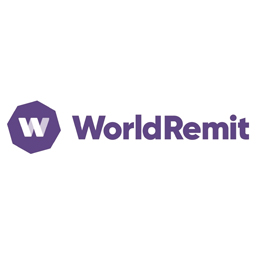 Visit WorldRemit
Visit WorldRemit
Used By: 5000000
Currencies Available: 77
Transfer Fees: 0.99$-3.99$
Payment Methods: Bank Transfer, Debit Card & Credit Card.
iOS App : yes, Android App : yes
LiveChat: yes
Min Transfer: 1 USD
Max Transfer: 9000 USD
Year Founded: 2010
 Visit Ria
Visit Ria
Used By: 61000000
Currencies Available: 96
Transfer Fees: 5$-35$
Payment Methods: Bank transfer, debit/credit card, cash
iOS App : yes, Android App : yes
LiveChat: yes
Min Transfer: None
Max Transfer: US$2,999.99 / day
Year Founded: 1987
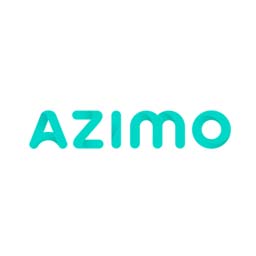 Visit Azimo
Visit Azimo
Used By: 500000
Currencies Available: 139
Transfer Fees: 2.99%
Payment Methods: Bank transfer, debit/credit card, SOFORT, iDeal
iOS App : yes, Android App : yes
LiveChat:
Min Transfer: £10.00
Max Transfer: £250,000.00 (SWIFT), £12,000.00 (card)
Year Founded: 2012
 Visit Western Union Singapore
Visit Western Union Singapore
Used By: 150000000
Currencies Available: 38
Transfer Fees: up to 3%
Payment Methods: Bank deposit, cash pick-up, mobile wallet
iOS App : yes, Android App : yes
LiveChat: yes
Min Transfer: S$1.00
Max Transfer: S$10,000.00 (can be even lower depending on the currency)
Year Founded: 1851

A foreign cheque is issued in a foreign currency to an Japanese resident and payable at a non-Japanese bank. A recipient in Japan may receive one of these cheques in Australia. This process can take weeks and can be costly in Japan. The payment process is called collection. When you receive a foreign cheque in Japan you must return it to the issuing bank. You must contact the issuing bank if you need help to make this payment.
Once you deposit a foreign cheque into an Japanese bank account, it will be held for fourteen to sixteen days, depending on the bank in Japan. Only then can you withdraw the money from it? While this may seem like a hassle, it is essential to remember that you will have to wait for it to clear before you can use it. When you receive a foreign cheque in Japan you must pay the associated fee.
Whenever you receive a foreign cheque in Japan you must ensure it clears. The clearing process involves transferring the amount from the sender's account to the Japanese cheque receiver's account. Clear a cheque in Japan usually takes one to two business days, though the timeframe varies. You can withdraw the money once a foreign cheque in Japan is cleared. However, this can be frustrating if you need the cash quickly. You can deposit the funds into your domiciliary Japan account if you have the funds available.
The first is payment by negotiation in Japan. Regarding accepting foreign cheques in Japan there are a few different options. The first option is to cash the cheque in Japan at a post office or bank. The bank in Japan will need to clear the cheque, which can take weeks or even months.
If the cheque In Japan is made from a foreign currency, it must be paid through a collection service. This option is slower than cheque negotiation, which takes weeks or months. A customer's account in Japan may be overdrawn, so they must repay the bank. Alternatively, they can pay by bank transfer. To pay by cheque in Japan you must provide your account details to your bank.
Payments by negotiation in Japan is a popular payment method for most small businesses. However, in Japan it is only sometimes practical. It is best to consult a lawyer before negotiating with your customer. This processing can be tricky in Japan and requires a strong business strategy to ensure success. In most cases in Japan a good business strategy is to reward loyal customers with better payment terms. It is helping to maintain solid operational cash flow and ensure the recurrence of orders. If a customer's invoice is past due in Japan it is essential to appease tensions, as this can become non-payment.
If you receive a cheque in Japan through negotiation, you will get it quicker than if you use the regular deposit method. Your Japan bank will credit your account in a few days, even if the cheque bounces. You can only negotiate a foreign cheque in Japan if it is written in the same currency as the country of origin. Otherwise, you will have to pay a fee. A good negotiation service in Japan will let you know how long it will take for your payment.
If a payment is delayed in Japan the payer can submit a collection order. The payer must present this order to the beneficiary's bank in Japan to get the funds. The order is valid for ten days after it is issued. This process in Japan is faster than payment by negotiation and is the best option for same-currency cheques. In addition, it is more convenient than paying in cash. However, payments by collection in Japan can be time-consuming, so you should be prepared to wait longer before you can get your money.
Once the bank receives the cheque, the recipient's bank in Japan will credit the account within days. Alternatively, in Japan the recipient's bank will remove the funds from the cheque if it bounces. The only difference between the two methods in Japan is that payments by negotiation are only possible with foreign cheques written in the country of origin. For example, a foreign cheque written in the US dollar would not be eligible. As with all collection methods, there is a fee for this service.
When sending international cheques to Japan you should always check the currency's exchange rate. Otherwise, the money may need to be exchanged properly in Japan resulting in a dishonoured cheque. While this is not common, it is essential to remember that if you receive a cheque with an incorrect exchange rate in Japan you will be asked to return it.
To deposit an international cheque in Japan you must contact a bank in your home country to process the transaction. Most banks in Japan have a process that allows you to deposit your cheque in a foreign currency. Forience cheque processing can take a few days to weeks in Japan. If the cheque is worth more, you may have to wait until it clears. In some cases, you will have to pay a fee.

The clearing process is the movement of funds between the two parties of a trade. It is a vital part of the banking system in Japan. Typically, cheques drawn from one bank are deposited in another bank. When a customer deposits a cheque at another bank, the deposit bank receives the funds and then requests a special cheque clearance in Japan. After the required time, the funds are made available to the depositor. This process generally takes three business days. However, if the amount of a cheque in Japan is more than that, it may take longer, which is where the Clearing Process comes in.
A foreign cheque in Japan typically takes two to fifteen days to clear and physically transfer to the bank in the country of origin. A bank has no control over how long it will take to clear a foreign check, and the overseas bank may have a different exchange rate than a UK bank. The exchange rate in Japan may have changed between the cheque's presentation date and the actual clearing of the money.
Once the cheque has been received In Japan, it must go through the clearing process. This process involves transferring funds from the sender's account in Japan to the receiver's account. An Japanese domestic cheque usually clears within one to two days. A foreign cheque, however, may take up to several weeks to clear. If you wait too long, you may even have to pay a fee.
Most banks in Japan accept foreign checks, but not all do. Some require you to deposit the cheque with your local branch in Japan, while others only take foreign currency cash letters. A cash letter is a convenient option if you are trying to deposit a foreign cheque, but it has conditions. You need to apply for a credit limit in the country on which the cheque is drawn, but it is still better than nothing. EBC sends the item to your Japanese bank and then proceeds with the collection process when the thing has cleared. The collection time varies by country, but it usually takes four to eight weeks.
Some Japanese banks accept foreign cheques on a cash letter, but only if they take them in their country. Alternatively, you can send a cash letter if your foreign cheque is drawn from a foreign bank. In this case, you must apply for a credit line with the Japanese bank. This alternative solution is more efficient, but you must be sure that the Japanese bank you are dealing with will give you a credit limit for your cheque.
One crucial thing for Japanese residents to remember is that foreign cheques must go through the collection process in Japan before you can cash them. Your foreign cheque will be held until the funds are cleared. If the money in your Japan account is in another currency, this will cause additional delay. You can negotiate to use your funds before the cheque clears. If you cannot wait for this process, you can always cash it at a bank. Another reason to refrain from cash a foreign cheque at a post office in Japan is that you need an Japanese local bank account. If you do not have a local bank account, you can have the cheque deposited into your account. However, this process will be lengthy and will incur additional fees. Additionally, you may have to pay a processing fee for cashing the foreign cheque. The cost will depend on the check amount, the Japanese bank's policy, and the bank's policies.
Yes, you can. The only difference is that you must bring your cheque to an Japanese institution that accepts such transactions. This type of ATM withdrawal is the easiest way to deposit a foreign cheque. When you deposit a foreign check at an Japanese ATM, the deposit will be held until the cheque clears. If you want to withdraw the money immediately, you can deposit it into an Japanese bank account.
If you have a foreign cheque, you must ensure the Japanese bank clears it before depositing it in your local currency. Finding an ATM in your local country that accepts foreign cheques is possible. However, you will likely need to withdraw the money before using it for other purposes. In these cases, you will want to use an Japanese bank that specializes in accepting foreign cheques.
One method is to wait for the cheque to clear at the Japanese bank where the recipient lives. This process usually takes about a day but can take several weeks. Some countries recall funds once cleared; you must pay an extra fee. In the case of a foreign cheque, you can cancel the cheque after six months to avoid incurring additional costs.
A foreign cheque in Japan has two options for cashing. The first is payment by collection. This option is only available when the country of origin differs from the country of destination. The process can take a few weeks or even longer if the country and currency differ. Japanese nationals may have to pay an extra fee for this option, and the money is not refundable after six months. When you are ready to cash your check, you must decide how to transfer it. If you plan to send it overseas, it is best to wait until the process ends.
The first step is to locate an Japanese ATM that accepts checks. Many Japanese ATMs will only accept cash, which means you need a bank account. In addition, some will not accept deposits or cash. You should always be aware of your surroundings, especially at an unfamiliar ATM. If you are uncomfortable, it is not a good idea to withdraw some money. The most common requirement is a valid Japanese photo ID.
Next, you must know how to read a cheque. The amount on the cheque is the amount. You will need to know the currency's denomination and the drawee. This information is usually preprinted on the cheque. You must be sure the money is written in words and figures. It is important to remember that it is an Japanese local currency, even if it is written in a foreign one.
Although they issue cash, Japanese banks wait to provide any value. Their service is to create a deposit account for the borrower, which the borrower can then draw money from by cheque. Demand deposits are another form of money that an Japanese bank offers. Unlike savings accounts, demand deposits are a valuable way for Japanese banks to increase the quantity of money in circulation. Commercial Japan banks also act as agents for their customers, collecting cheques, paying dividends, interest warrants, utility bills and rent.
In the simplest terms, Japanese banks do not provide cash loans. They create a deposit account for the borrower, which they use to pay back their customers. Then, they use this Japan account to issue money. The banks in Japan also use it for other purposes, such as making mortgages, selling securities, and servicing customer accounts. Commercial Japanese banks are serving their customers as agents by providing these services. They assist customers in collecting cheques, paying dividends, interest warrants and even paying utility bills and rent.
If you are paying a cheque in a foreign currency, you may wonder if the exchange rate in Japan will affect the value of the cheque. The answer is yes. The exchange rate in Japan that you use when paying a cheque will depend on the value of the individual currencies.
Before you send a foreign cheque, you should consider its currency. Using foreign currency to pay a cheque is very risky because the Japanese bank may not be able to accept it. In addition, you may have to wait for a few weeks for the funds to clear. If you are paying a cheque in a different currency, send it through a postal service rather than an electronic method. The best way to make payments is to pay bills electronically and avoid the hassle of waiting for an Japanese bank to transfer funds.
Foreign cheques must pass through the clearing process, which involves transferring funds from the receiver's Japan account to the sender's Japan account. Typically, this takes one to two days. However, this process can take much longer if the cheque is made in a foreign currency. You can always use a cash letter service if you are still waiting to cash your cheque. EBC will then send the item to the Japanese bank and proceed with the cash. The collection period varies, but it typically takes four to eight weeks.
Once you have found an Japanese bank that offers the best foreign cheque-clearing service, check out their other offerings. These options will save you a few extra AUD in the long run. While there are many options, a cash letter will be best if you cash a foreign cheque. It is also important to remember that when you pay for a cash letter, you are transferring the money to the Japanese bank. It would help if you ensured that the Japanese bank you choose has a sufficient credit limit for the cash letter to be processed successfully.
There are many different methods for cashing foreign cheques in Japan, but cashing a foreign cheque at an Japanese bank usually costs up to 5% of the value of the cheque, and the clearing process can take a few days or weeks. In many cases, you can negotiate against the issuer and get more money, but this can be time-consuming and frustrating.
The main downside to using an Japanese bank is that foreign cheques often need to be more accepted. The Japanese bank must physically send the cheque to the country where the cheque was issued. In addition, it may need to be clarified and processed on the same day as the Japanese bank. Additionally, the foreign bank may be charging its exchange rate, and the exchange rate could have changed between the date the cheque was presented and when it cleared.
When sending money abroad, you must know how to send the money in the correct currency. The first step is to log on to your Japan bank's website. Select the international money transfers section. You will need the recipient's name, Japan account number, IBAN, and SWIFT/BIC codes. Once you have these details, you can set up the payment. If you send money to a foreign country outside Japan, it is essential to know any limits.
Most international money transfers in Japan are made via wire transfer. This method is the fastest and most expensive and depends on the destination in Japan and currency. SEPA payments are a cost-effective option if you are sending to a recipient in the Eurozone. When sending money to another EU member, you will need to know the Japan IBAN account number of the beneficiary.
The most common method of international money transfers in Japan is wire transfers. Although this method is the fastest, it can also be more expensive. The rate of wire transfers in Japan depends on the destination currency pair. If you send money to an Japanese bank account in the Eurozone, you will likely find a more affordable option using SEPA payments. The fees associated with these methods are minimal compared to other options, and they are usually the only way to send money overseas.
There are a few different types of Specialty Money Transfer Companies in Japan. Some are better for international transfers than others, and you may consider one if you are travelling outside of Japan or have no credit card access. For example, MoneyGram is better for international transfers than Western Union in Japan. However, it is still possible to use cash in certain countries. Currencies Direct offers free transfer services and low exchange rates. You can easily set up an Japan account online or with a mobile device. The only downside to Currencies Direct is that it only handles transfers into 20 different currencies. If you are worried about stealing money, try another money transfer company. If you choose an Japanese bank, ensure they offer secure money transfers.
We list reviews for the best money transfer services for cashing foreign cheque money in Japan you can check out some of the best Japan money services below.
If you would like to see Wise Multi-Currency Account compared against some of the best Wise Multi-Currency Account alternative Japan money tranfer services available right now you can do so by clicking on the links below.